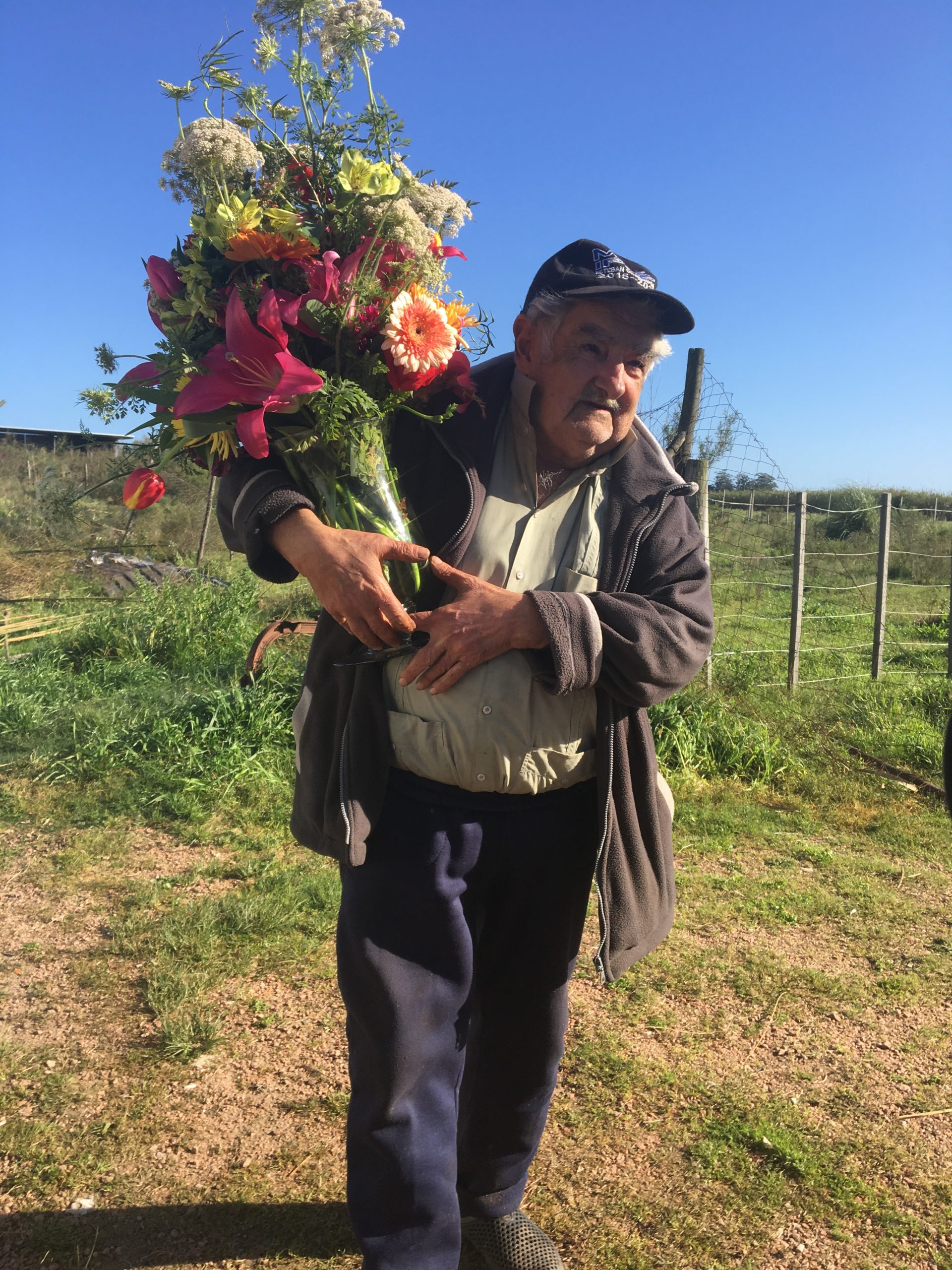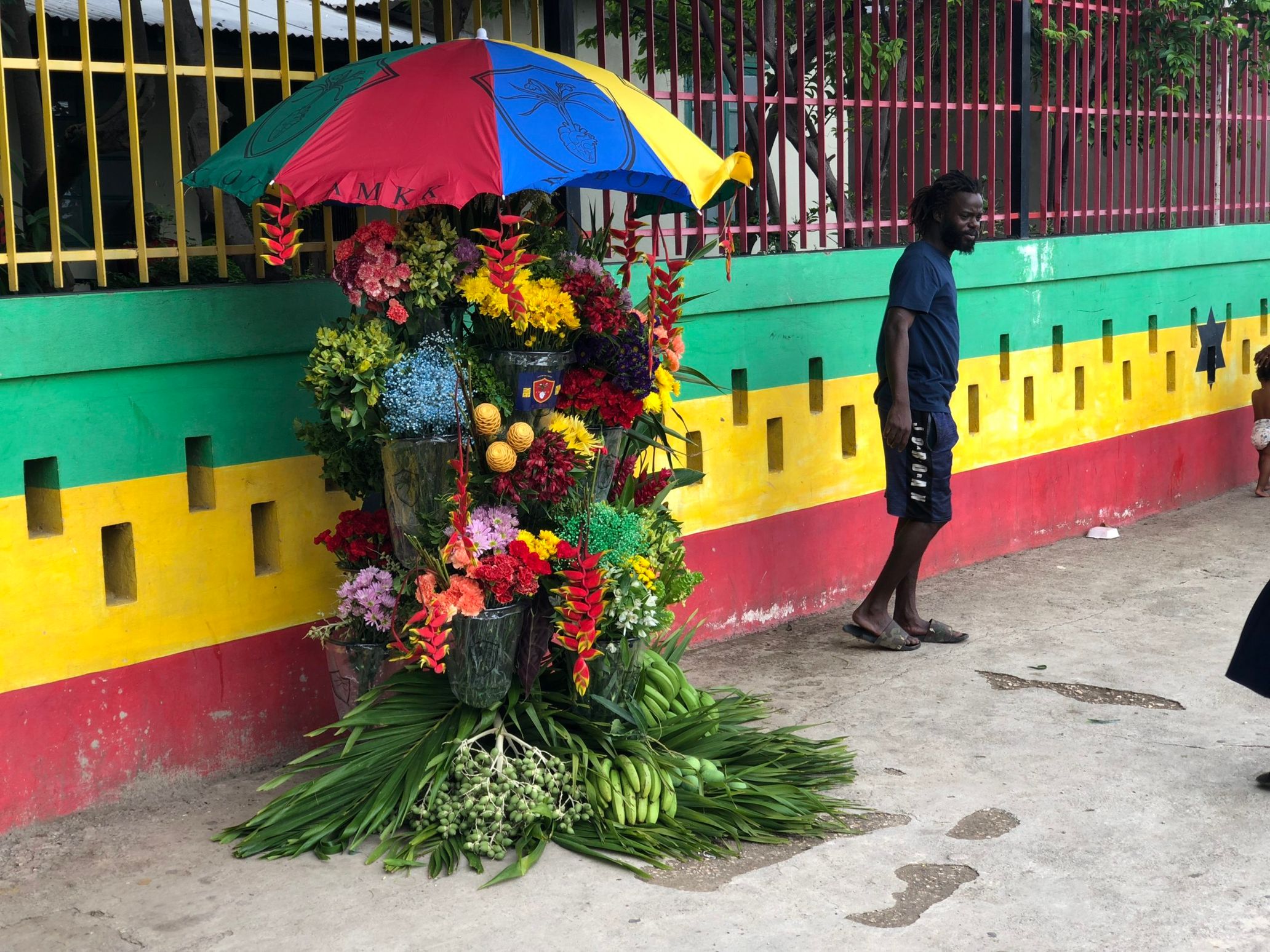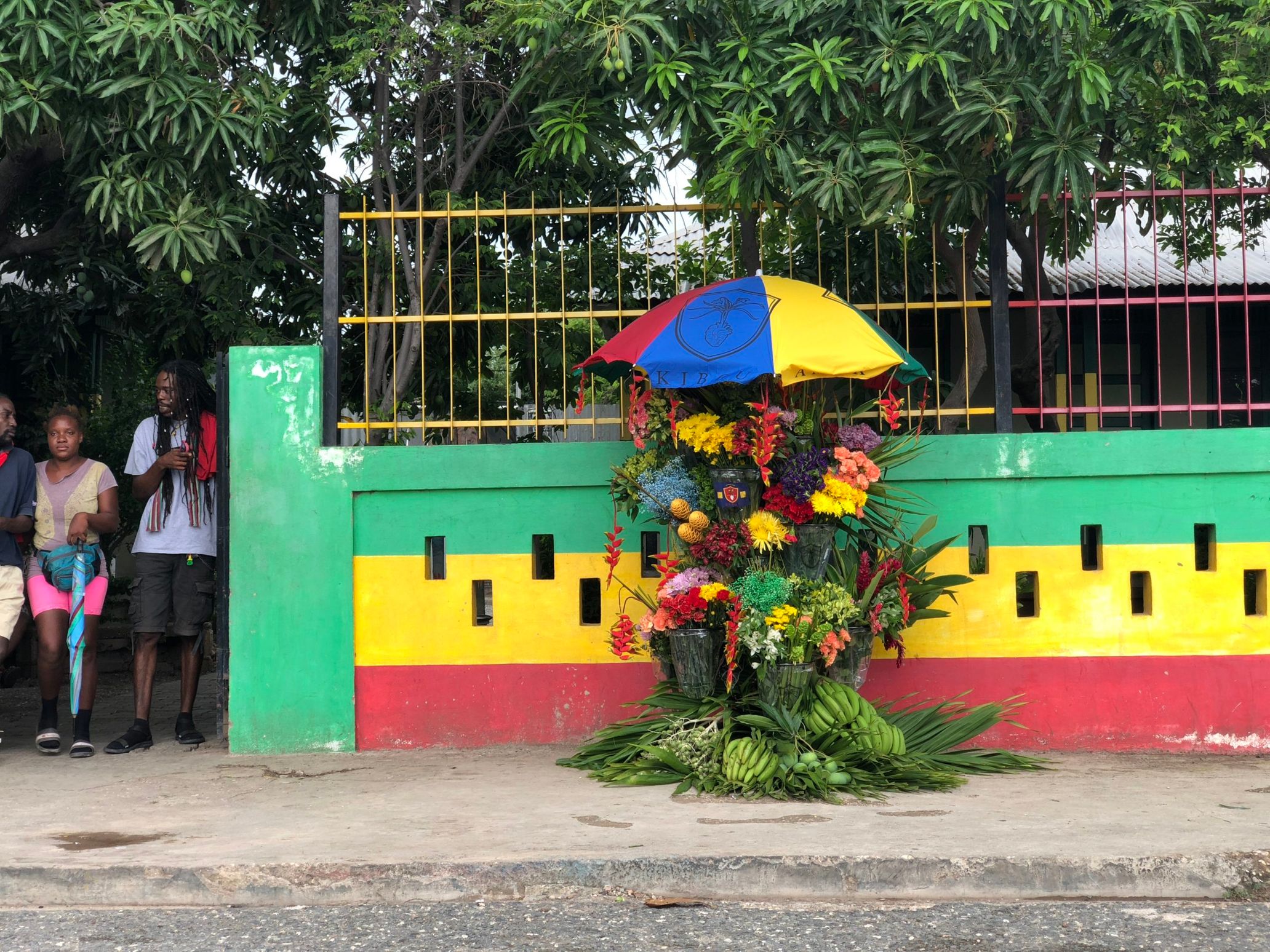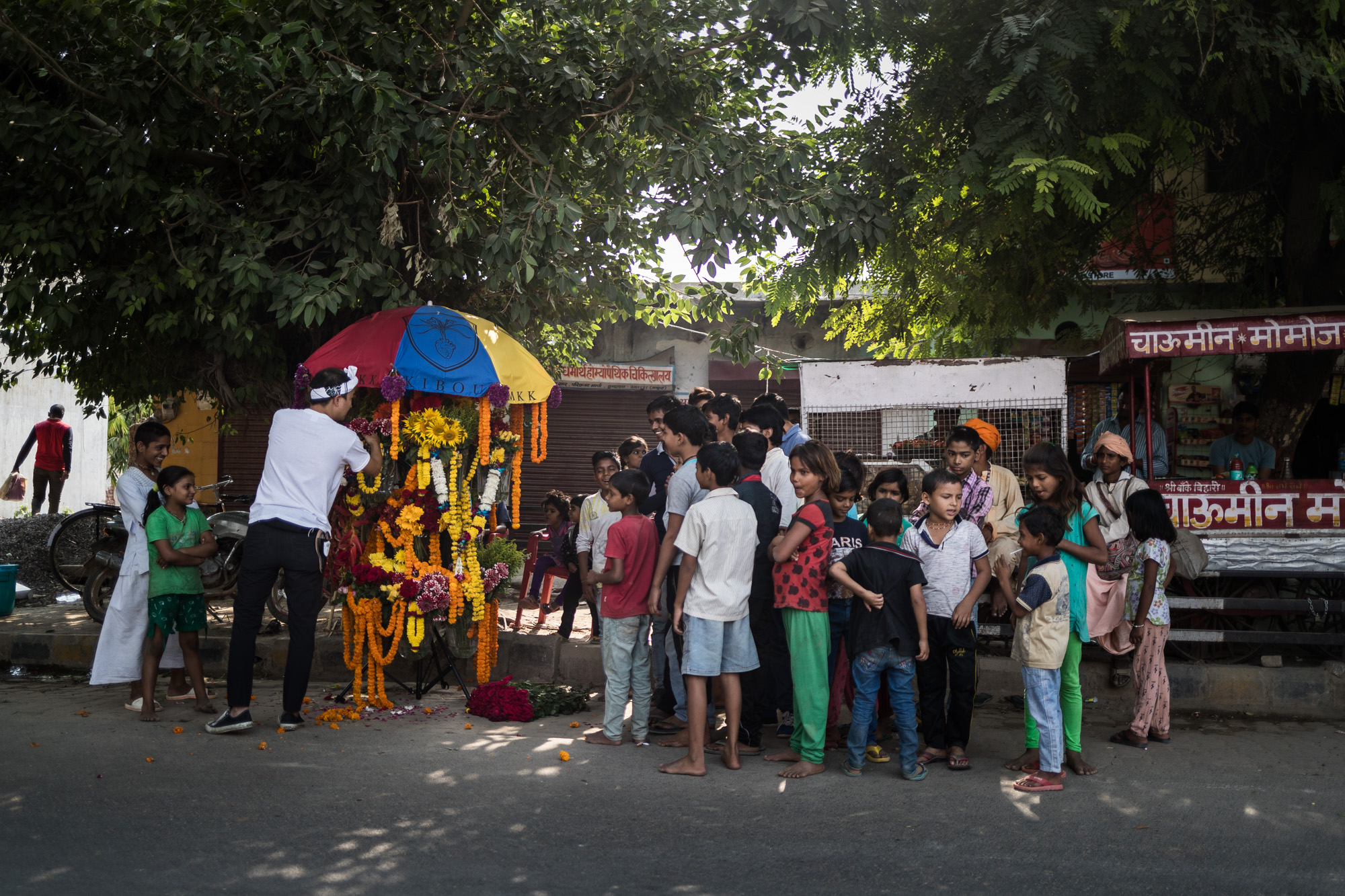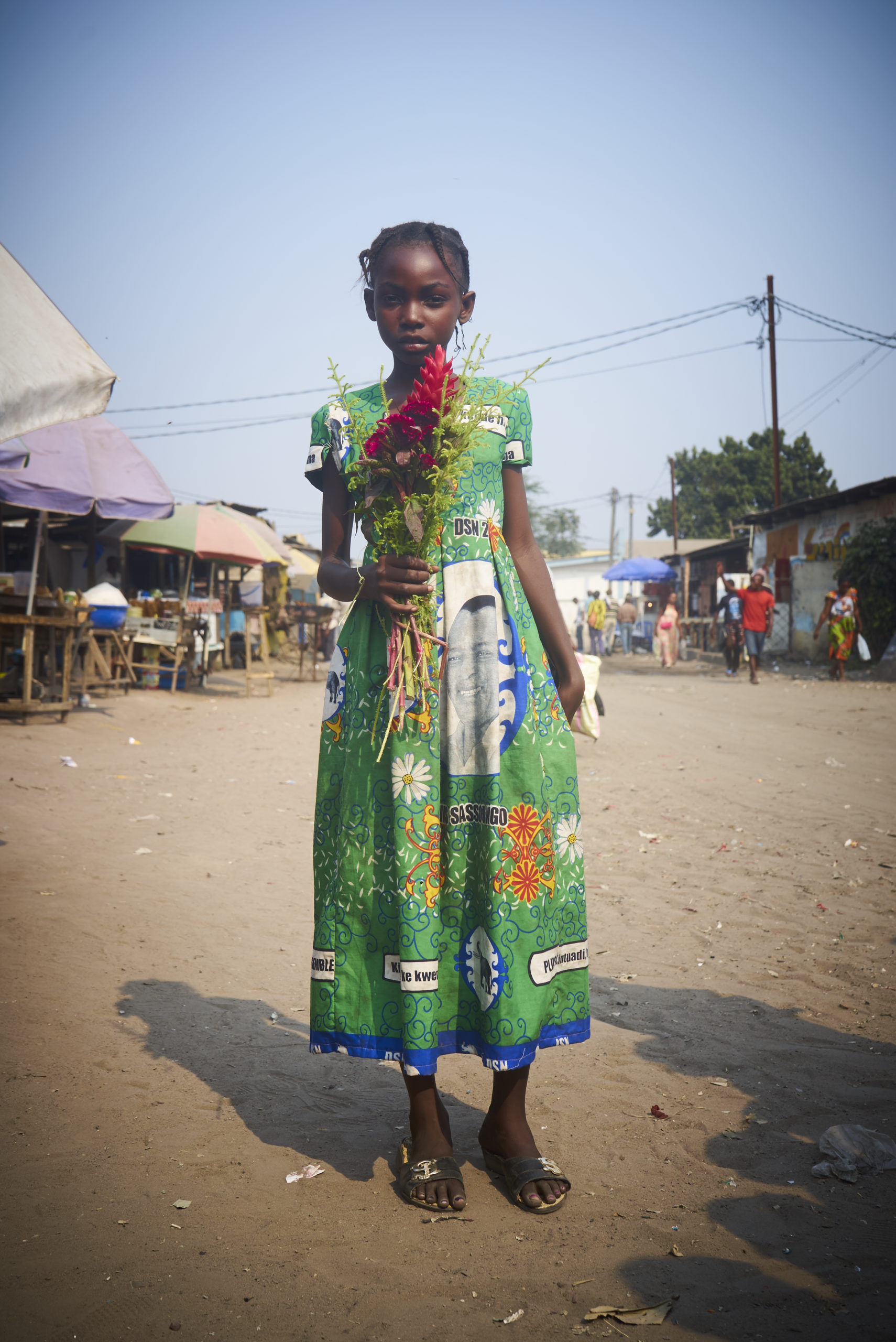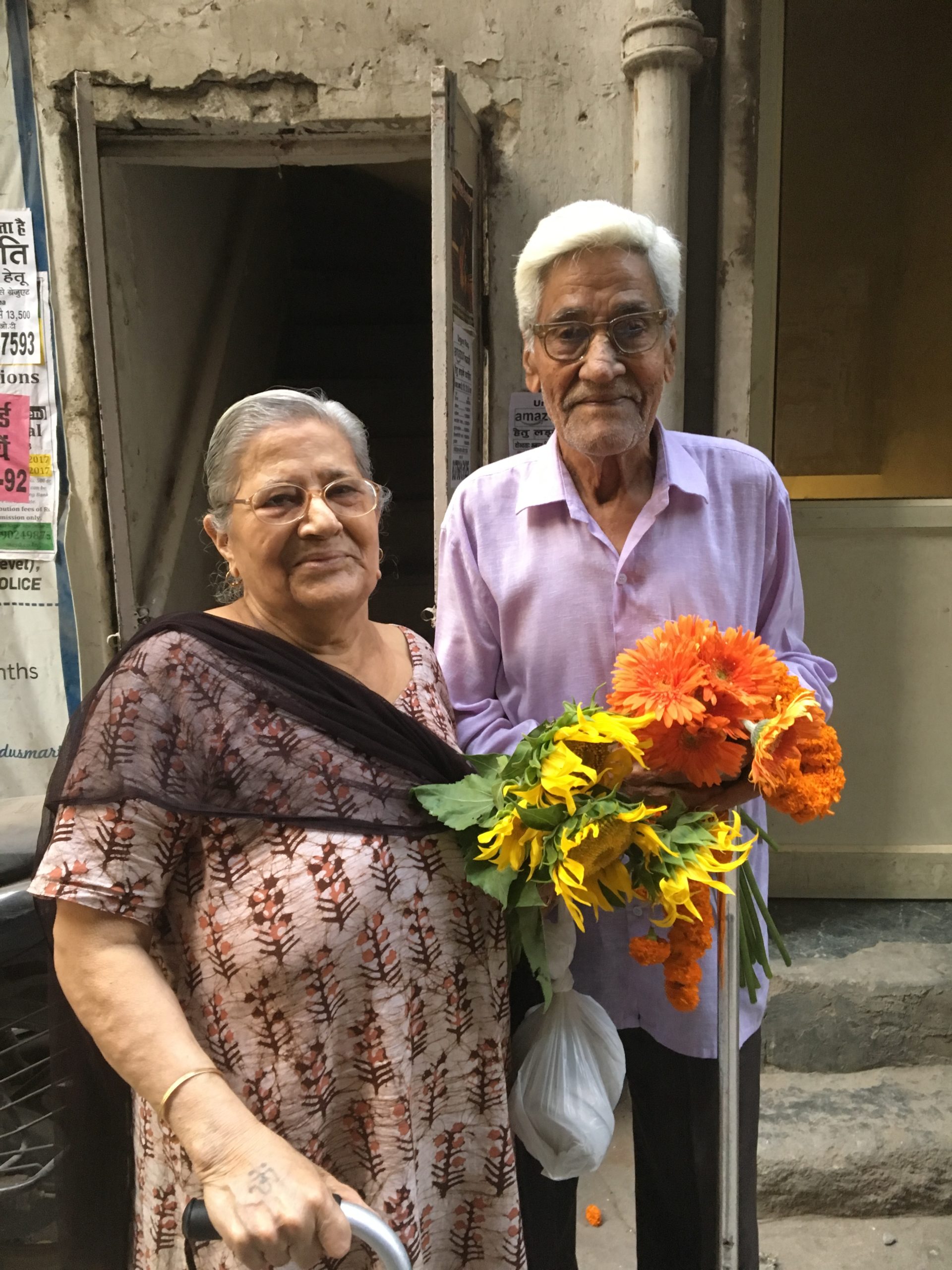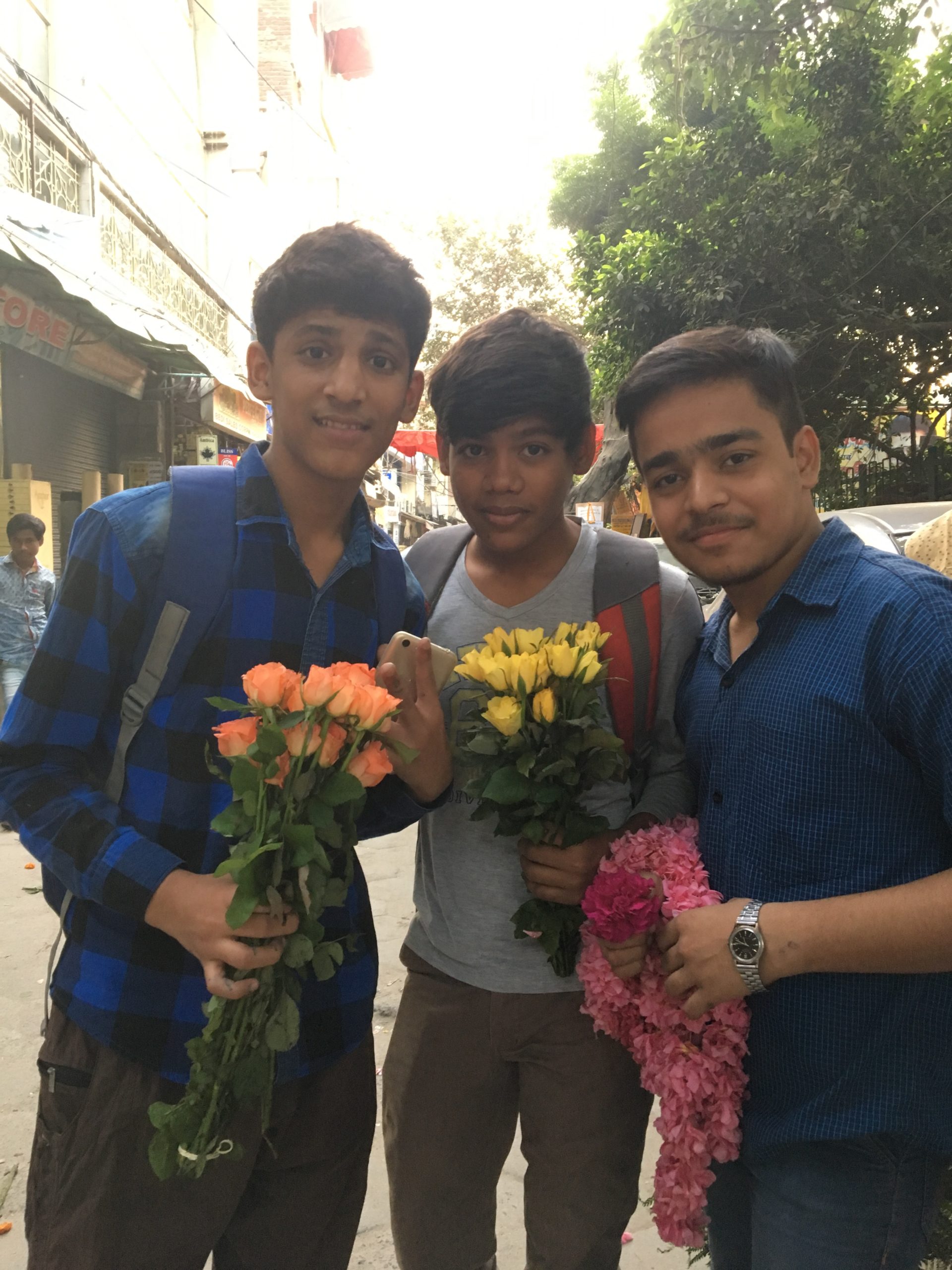AMKK (“Azuma Makoto, Kaju Kenkyujo”) is a flower creation group run by Makoto Azuma, flower artist, and Shunsuke Shiinoki, botanical photographer. Their work revolves around “JARDINS des FLEURS” a custom-made bouquet shop in Minami Aoyama, Tokyo. Further, they also create experimental art pieces and collaborate with fashion brands such as Hermes and Dries Van Noten. Among their wide range of work, they have a project called “Flower Shop KIBOU.” It’s hard to miss the flower shop because of their vividly colorful parasol. Their mission is simple; to go all around the world and give people free flowers on the street. The group researches native flowers before they go to their destination and supplies most of their flowers at the location.
Flower Shop KIBOU was founded in 2016. It was the year that rocked the world: Donald Trump won the election in America and the UK voted to leave the EU. Azuma says, “There was a sense of unrest in the air when I was working in different countries abroad. I felt like the political and economical landscape was going to change drastically. We thought about what we could do, and looked at the role of flower shops. We thought about what sort of feelings people pour into the flowers they send and realized that we wanted to make people happy by giving them flowers.”
There was an incident that made Azuma feel confident about Flower Shop KIBOU, which was created through a series of trial and error. He made a visit to former president of Uruguay, Jose Mujica, who Azuma looks up to. Mujica refused to live in the presidential residence during his presidency and donated over 90% of his earnings and lived a humble life. He’s been coined “the poorest president in the world.” He recalls the moment: “When I spoke to him about Flower Shop KIBOU, he told me that it was great. Even if the world changes, there are things that’ll continue to last, such as time and a loving heart. He said, ‘it’s the same with sending flowers that carry emotions that can’t be expressed with words’ and that made me realize that starting the project was the right answer. It gave me some motivation and momentum.”
Azuma has gone to places such as India, Jamaica, Brazil, Germany, and Algeria; he’s been to over 10 countries through Flower Shop KIBOU. He states that “the language of flowers is the shared language of the world.” “There are flower markets in the countryside of Africa and towns around the Amazon. Through my travels, I realized that flowers are an important part of everybody’s lives, regardless of race and nationality. For instance, red roses symbolize love and marigolds are religious offerings. It’s interesting how flowers have the same meaning in different parts of the world, even though no one decided on it.”
His encounters abroad showed him the power of flowers. Despite being a foreigner, the locals didn’t fear him and he was welcomed in dangerous places such as Brazil’s favelas (slums) too. In India, he saw a lot of children beggars but when they saw him handing out flowers, they didn’t ask for money. Rather, they were delighted when they received flowers. He says, “When you appeal to human greed, conflict is born but flowers appeal to emotions. I think that’s why the opposite effect is born from that. The culture of giving flowers hasn’t gone out of style, despite the world being filled with other products. Perhaps it’s something that we’re deeply attached to.”
Flowers Strengthen Human Connections and Spread Hope
What Flower Shop KIBOU does is quite simple, but it’s not just about Azuma giving flowers to others, as the human connections made from the project go beyond that act. When an individual receives flowers from Azuma, they in turn send them to someone else; it can be said that this chain reaction is at the heart of the project. “This project has grown more than I had expected. Some people give the flowers to their partner or parents, while others bring it to a loved one’s grave. I reckon they do these things because they want to share the joy of receiving flowers with someone. The act of handing out flowers may seem small, but that spreads to other people, just like a wind-pollinated flower.” It’s fair to say that people feel compelled to share the happiness they feel from receiving flowers. There’s no doubt that relationships become even more special thanks to the analogue form of communication born from the medium of flowers.
Azuma continues: “When I started this shop, people often asked me, ‘do you wish for world peace?’ I do think flowers are one of the things that can help bring world peace but I initially wanted this project to become a fond memory for the people I met, especially children. People that receive the flowers send them to other people, and they talk about how they felt. I hope this could serve as the catalyst for hope to go around more.”
On Launching the Shop in Tokyo For the First Time
From July 28th to August 2nd, Flower Shop KIBOU is going to open in TOKION the STORE in Tokyo. He says, “Because of this situation we’re in, I can’t really tell people to come to the store. I also can’t predict how people will react. However, I do want to bring some joy to people by giving them flowers with the utmost caution.”
Further, their in-demand Flower Shop KIBOU staff shirts and other products will be sold too. The profits will go to the continuance of funding flowers for Flower Shop KIBOU. “I might have to give flowers to people from a distance. I’ll make sure to interact with people in a way that doesn’t create crowds. On top of the coronavirus pandemic, there’s also the American presidential election coming up in November. I think the world is going to change in a big way again. That’s why I want to keep on conveying the message we’ve been conveying until this point.”
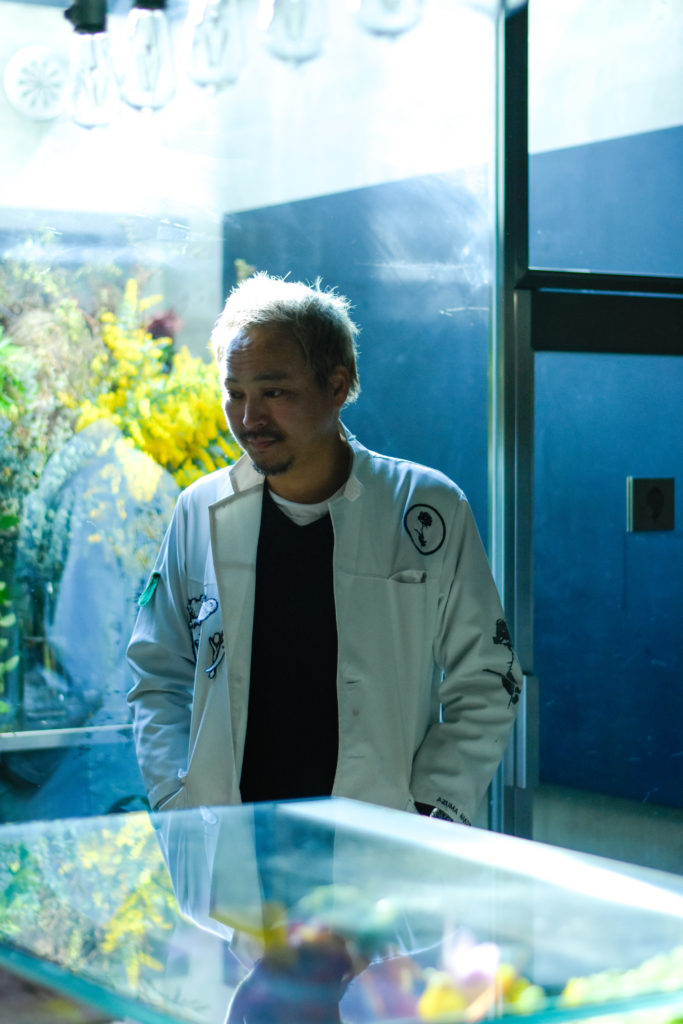
Makoto Azuma
Born in 1976, Makoto Azuma moved to Tokyo in hopes of becoming a musician but he got into the floral industry after working at a flower shop as a part time worker. In 2002, he opened a custom-made flower shop, “JARDINS des FLEURS” in Ginza, Tokyo alongside Shunsuke Shiinoki, former highschool classmate and current-day photographer in charge of capturing their floral works. The shop is currently in Minami Aoyama. He began creating sculptures out of plants in 2005 while working on the flower shop. In 2009, he founded AMKK (“Azuma Makoto, Kaju Kenkyujo”). His work has been exhibited in museums, art galleries, and public spaces in New York, Milan, Paris, Shanghai, Brazil, and so forth.
https://azumamakoto.com/
Photography(Profile) Shin Hamada
Translation Lena-Grace Suda


